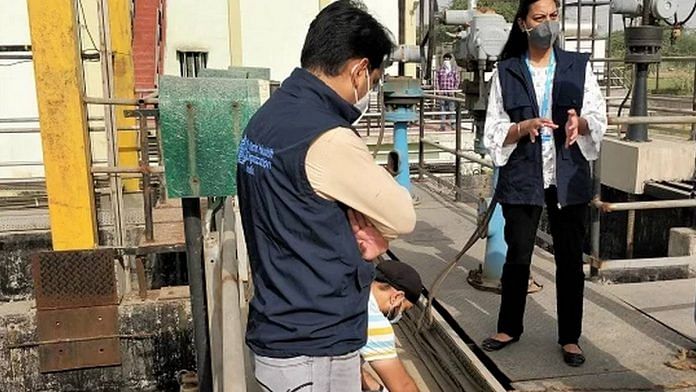Kolkata: Traces of the polio virus found in a sewage sample from Kolkata were “vaccine-derived” and “likely to have been excreted by an immune-deficient individual”, according to a World Health Organization (WHO) statement released Friday.
The detection of the virus was reported Wednesday. ThePrint had subsequently contacted the WHO to ascertain whether this represented a public health concern in terms of active wild polio infections.
Acknowledging that India faces the “threat of importation of the wild polio virus (WPV) and/or vaccine-derived polio viruses (VDPV) from countries that are still reporting cases”, the WHO indicated that the Kolkata sample was not a cause for alarm.
“One case of VDPV-type 1 was detected from environmental sewage sample collected from the Shyamlal Lane ES site in Kolkata on 25 April 2022,” the WHO statement said.
Following this, “a thorough epidemiological investigation” was conducted in the catchment area of the site — comprising about 70 neighbourhoods — from 26-28 April by the Government of India, with the technical support of the WHO, as well as assistance from the West Bengal government.
“Genetic sequencing of this isolate established that it was not related to any of the previously identified VDPV1 viruses and was likely to be iVDPV (excreted from an immune-deficient individual),” the WHO said.
The statement further noted that the detection of the virus established that India’s surveillance system was “highly sensitive” and capable of providing “early warning about declining population immunity in a geographical area”.
The last recorded case of the wild polio virus in India was detected in Howrah, West Bengal, in 2011. The WHO declared India to be polio-free in 2014, but this status continues to be regularly assessed by the organisation’s Regional Certification Commission for Polio Eradication.
Also Read: AstraZeneca vaccine safe, effective in kids, finds Lancet study. WHO still says for adults only
No cases of wild polio detected
The discovery of the virus traces in Kolkata was not taken lightly.
As many as 70 neighbourhoods were surveyed and information gathered on the local demography, migratory patterns, immunsation coverage, and quality of environmental surveillance (ES) — which involves regular collection and testing of sewage samples — the WHO statement says.
The quality of acute flaccid paralysis (AFP) surveillance was also checked.
AFP refers to a clinical syndrome — a set of signs and symptoms— that includes acute weakness or paralysis with reduced muscle tone. Wild polio virus is one of the causes of AFP. Clinical cases of AFP are often globally monitored to keep a tab on wild polio virus.
The survey indicated that there were no missed AFP cases in the community or in hospitals and clinics. Further, the “surveillance indicators are well above the recommended global standards”.
The WHO affirmed that the West Bengal government would “continue to maintain strong surveillance and immunisation”.
“The current surveillance system in India, which includes AFP surveillance and environmental surveillance, is robust enough to detect not only any wild polio transmission but also any instance of vaccine virus or vaccine-derived polio virus (VDPV) in individuals or in the environment,” the WHO statement said.
What’s a vaccine-derived polio virus (VDPV)?
The weakened polio virus used in vaccinations has given rise to mutations in the form of VDPVs, resulting in some polio outbreaks in developing countries.
Speaking to ThePrint, Dr P.P. Giri of the Institute of Child Health, Kolkata, explained: “If you give an oral vaccine like the polio vaccine to a child with immunodeficiency, there is a remote chance that the child could get infected with the disease by the vaccine. Though these vaccines are very safe, there is a margin of error.”
According to Giri, if a child who is severely immunodeficient is given a live vaccine or Injected Polio Vaccine (IPV), it could cause an infection. “Any child who has severe immunodeficiency should never be administered live injectable vaccines like chickenpox or IPV,” the doctor said.
(Edited by Asavari Singh)
Also Read: ‘Credit to healthcare’ as Kerala tops with 42% stroke claims under Ayushman Bharat in 2019-21



